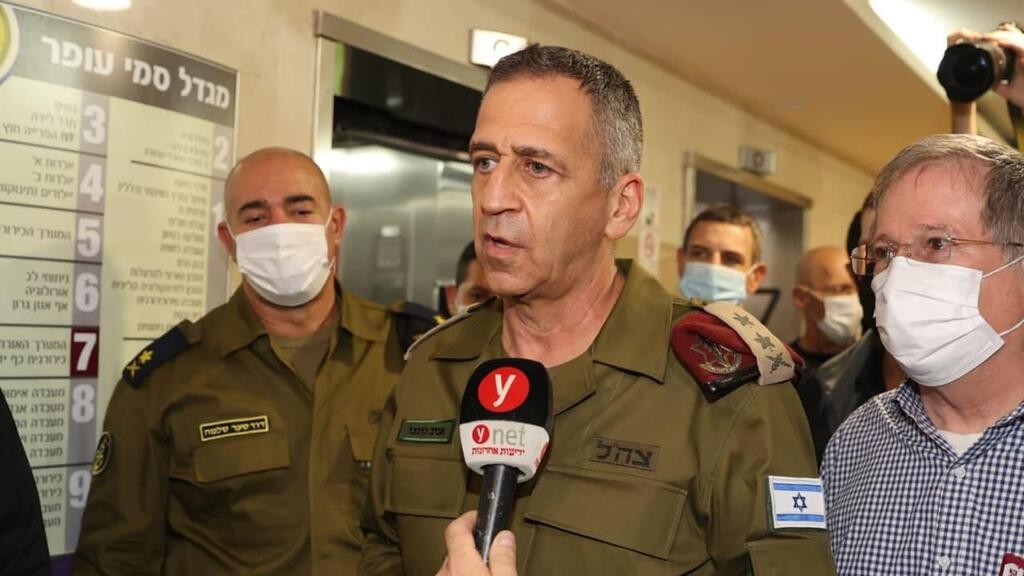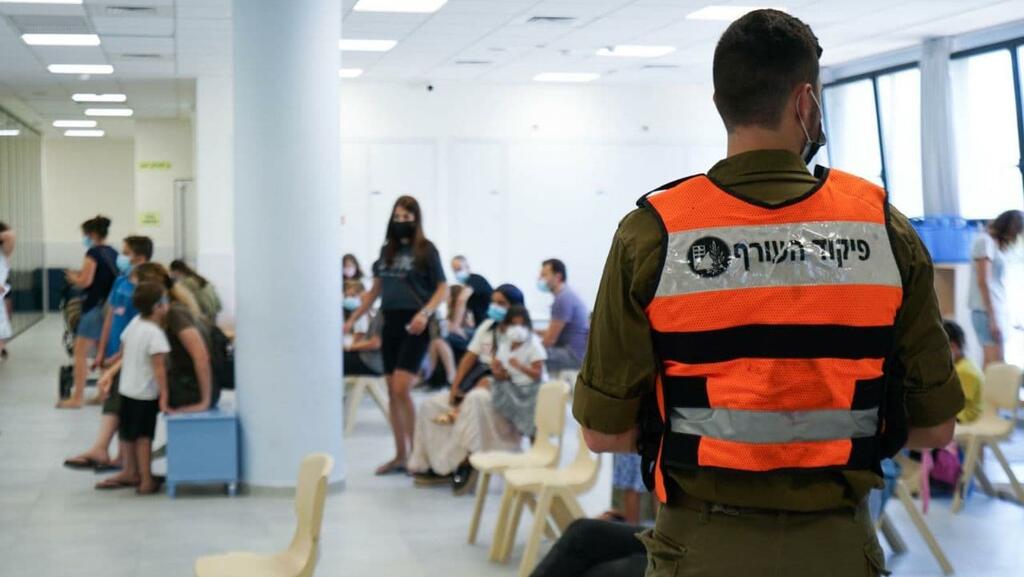Getting your Trinity Audio player ready...
The military said on Tuesday it will ask health authorities to shorten soldiers' coronavirus quarantine period amid fears the massive surge in Omicron cases may sabotage IDF's operational capabilities.
According to the military, at least 5,000 soldiers are currently classified as active COVID patients, of whom at least two are major generals. Thousands more have also been sent to quarantine after exposure to a confirmed carrier.
The military said that most of the infected soldiers are asymptomatic or suffer from mils symptoms.
IDF Chief of Staff Lt. Gen. Aviv Kochavi held on Monday a situational assessment on preservation of IDF's operational capabilities, with emphasis on special units such as air defense, submarines, and critical facilities. After the meeting, it was decided to ask the Health Ministry to reduce the quarantine period of "essential'" IDF personnel to five days.
Kochavi also ordered the Home Front Command to assist Israel's economy, the Health Ministry, and the education system as much as possible.
"If quarantine time won't be shortened, there will be no one to protect the frontier in two weeks," a senior IDF officer said. "We must change IDF's quarantine policy. The main goal is to maintain operational continuity, but with such long isolations, and at this rate of contagion, it will be impossible."
In addition to potential damage to operational activity, the large scope of isolations has brought many command and training courses to a halt.
The Medical Corps, meanwhile, said they oppose suspending leave of soldiers as was done in previous COVID waves, but it does support the capsule model, which was implemented recently in some IDF units.
In the meantime, the military is also dealing with a phenomenon of soldiers falsifying results of COVID home tests.
Senior officials at Home Front Command said Monday that coronavirus testing labs had reached the limit of their testing capacity. "When we prepared for the worst scenario, we estimated 200,000 tests would be the limit, and we said in advance that at some point we won't be able to test everyone."
The officials also mentioned that they expected the testing capacity of the laboratories would be increased when the Omicron variant outbreak began but that never happened.




